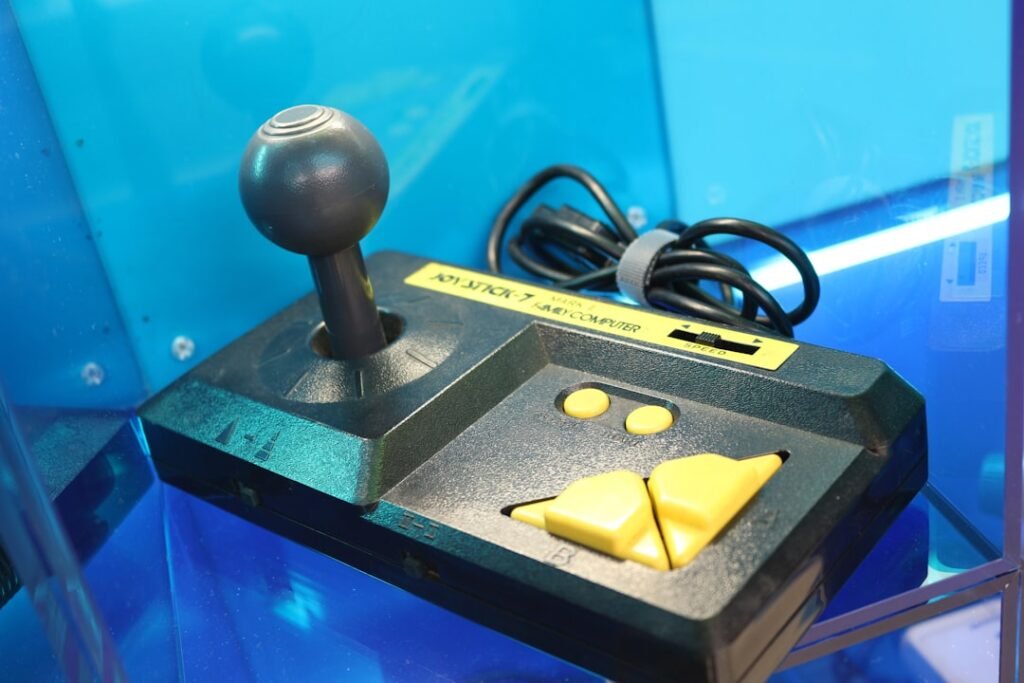Now Reading: Level Up: How to Go Pro in Gaming
-
01
Level Up: How to Go Pro in Gaming
Level Up: How to Go Pro in Gaming

As I delve into the world of gaming, I find it essential to grasp the intricacies of the industry that has captivated millions around the globe. The gaming industry is not merely a collection of games; it is a vast ecosystem comprising developers, publishers, gamers, and various stakeholders. Each segment plays a crucial role in shaping the landscape of gaming, from the creation of innovative titles to the marketing strategies that drive sales.
I have come to appreciate how this industry has evolved over the years, transitioning from simple pixelated games to immersive experiences that blur the lines between reality and virtuality. The rise of esports has further transformed my understanding of gaming. What was once considered a niche hobby has burgeoned into a multi-billion-dollar industry, complete with professional teams, sponsorships, and global tournaments.
I have witnessed firsthand how competitive gaming has garnered mainstream attention, attracting not only players but also viewers who flock to watch their favorite teams battle it out for glory. This shift has opened up new avenues for aspiring gamers like myself, as it highlights the potential for a career in gaming beyond just playing. Understanding these dynamics has been pivotal in shaping my approach to pursuing a future in this vibrant industry.
Key Takeaways
- The gaming industry is a rapidly growing and evolving sector with diverse opportunities for professionals and enthusiasts alike.
- Developing skills and strategies such as problem-solving, teamwork, and adaptability is crucial for success in the gaming industry.
- Building a personal brand through content creation, social media presence, and community engagement can help individuals stand out in the competitive gaming industry.
- Networking and collaboration with other professionals and organizations can lead to new opportunities and collaborations within the gaming industry.
- Managing time and resources effectively is essential for balancing personal and professional commitments in the gaming industry.
- Prioritizing mental and physical health is important for sustaining long-term success and well-being in the gaming industry.
- Seeking opportunities and sponsorships can help individuals and organizations grow their presence and impact in the gaming industry.
- Adapting to changes in the industry, such as new technologies and trends, is crucial for staying relevant and competitive in the gaming industry.
Developing Skills and Strategies
To thrive in the gaming world, I recognize that honing my skills and developing effective strategies is paramount. Each game presents its own unique challenges, requiring me to adapt and refine my gameplay continuously. I have dedicated countless hours to practice, analyzing my performance and identifying areas for improvement.
Whether it’s mastering complex mechanics or learning to read opponents, I understand that skill development is an ongoing journey that demands patience and perseverance.
It’s not enough to be skilled; I must also be able to anticipate my opponents’ moves and devise counter-strategies.
This analytical approach has enhanced my gameplay significantly, allowing me to make informed decisions under pressure. I often find myself studying game theory and watching replays of professional players to glean insights into their strategies. By combining skill development with strategic planning, I am better equipped to navigate the competitive landscape of gaming.
Building a Personal Brand

In today’s digital age, I have come to realize that building a personal brand is crucial for anyone looking to make a mark in the gaming industry. My online presence serves as a reflection of who I am as a gamer and an individual. I have taken steps to curate my social media profiles, showcasing my achievements, gameplay highlights, and personality.
By sharing my journey with others, I aim to connect with fellow gamers and create a community around my brand. Authenticity plays a significant role in personal branding. I strive to be genuine in my interactions, whether through streaming on platforms like Twitch or engaging with followers on social media.
By sharing not only my successes but also my challenges, I hope to resonate with others who may be on a similar path. Additionally, I have learned the importance of consistency in branding; maintaining a cohesive image across different platforms helps establish recognition and trust among my audience.
Networking and Collaboration
Networking has proven to be an invaluable aspect of my journey in the gaming industry. I have actively sought opportunities to connect with other gamers, content creators, and industry professionals. Attending gaming conventions and participating in online forums has allowed me to forge meaningful relationships that can lead to collaboration and growth.
These connections often provide insights into the industry that I wouldn’t have access to otherwise. Collaboration is another key element that I have embraced wholeheartedly. Working with other gamers or content creators not only expands my reach but also enriches my experience.
Whether it’s co-streaming a game or participating in joint projects, collaborating allows me to learn from others while contributing my unique perspective. I have found that these partnerships can lead to exciting opportunities and foster a sense of camaraderie within the gaming community.
Managing Time and Resources
As I navigate the demands of gaming alongside other responsibilities, effective time management has become essential. Balancing practice, content creation, and personal life requires careful planning and prioritization. I have developed a schedule that allocates specific time blocks for gaming, streaming, and engaging with my audience while ensuring that I also dedicate time for relaxation and self-care.
Resource management is equally important in my journey. Whether it’s investing in quality equipment for streaming or allocating funds for game purchases, I have learned to make informed decisions about where to allocate my resources. By being strategic about my investments, I can enhance my gaming experience without compromising other aspects of my life.
This approach not only helps me stay organized but also allows me to maximize the potential of every opportunity that comes my way.
Mental and Physical Health

The Importance of Physical Health
The intense focus required during long gaming sessions can take a toll on my well-being if not managed properly. To avoid this, I prioritize taking breaks during gameplay to stretch, hydrate, and clear my mind. This practice not only helps prevent burnout but also enhances my overall performance.
Mental Health in Competitive Gaming
The competitive nature of gaming can sometimes lead to stress and anxiety, especially during high-stakes matches or tournaments. To combat this, I engage in mindfulness practices such as meditation and deep breathing exercises. These techniques help me stay grounded and focused during gameplay while fostering a positive mindset.
The Benefits of Prioritizing Health
By prioritizing my mental and physical health, I am better equipped to face challenges head-on and enjoy the journey. This healthy balance allows me to perform at my best and maintain a positive outlook, even in the face of adversity.
Seeking Opportunities and Sponsorships
As I continue to grow as a gamer, seeking opportunities for sponsorships and partnerships has become a focal point of my strategy. I understand that aligning myself with brands that resonate with my values can enhance my credibility within the industry. To attract potential sponsors, I focus on creating high-quality content that showcases my skills while engaging with my audience authentically.
I actively research companies that align with my interests and reach out with tailored proposals highlighting how our partnership could be mutually beneficial. Building a strong personal brand has made this process easier; sponsors are more likely to take notice when they see consistent engagement and a dedicated following. By being proactive in seeking opportunities, I aim to create lasting relationships that can propel my career forward.
Adapting to Changes in the Industry
The gaming industry is ever-evolving, and adapting to changes is crucial for long-term success. As new technologies emerge and trends shift, I remain vigilant in staying informed about developments within the industry. Whether it’s advancements in virtual reality or changes in game mechanics, being adaptable allows me to stay relevant and competitive.
As new genres gain popularity or gameplay styles evolve, I am open to experimenting with different games and strategies. This willingness to adapt not only keeps my experience fresh but also broadens my skill set as a gamer.
By staying flexible and open-minded, I position myself for continued growth in an industry that thrives on innovation. In conclusion, navigating the gaming industry requires a multifaceted approach that encompasses skill development, personal branding, networking, time management, health considerations, opportunity-seeking, and adaptability. As I continue on this journey, I remain committed to honing my craft while fostering connections within the community.
The world of gaming is vast and dynamic, and by embracing its challenges and opportunities, I am excited about what lies ahead in my pursuit of success.
If you’re looking to go pro in gaming, it’s important to stay up-to-date on the latest trends and tips in the industry. One helpful resource to check out is the article on the top gaming podcasts and YouTube channels to follow. These platforms can provide valuable insights and advice from experienced gamers and industry professionals. By staying informed and learning from others, you can improve your skills and increase your chances of success in the competitive world of professional gaming. Check out the article here for more information.
FAQs
What does it mean to go pro in gaming?
Going pro in gaming means making a career out of playing video games at a competitive level. This can involve participating in tournaments, joining professional gaming teams, and earning a living through sponsorships, prize money, and streaming.
What are the requirements to go pro in gaming?
To go pro in gaming, you need to have exceptional skills in a specific game or genre, a deep understanding of game mechanics, strategy, and tactics, as well as the ability to perform consistently at a high level. Additionally, having a strong online presence, networking with other players and teams, and participating in tournaments are also important.
What are some popular games for professional gaming?
Some popular games for professional gaming include League of Legends, Dota 2, Counter-Strike: Global Offensive, Fortnite, Overwatch, and Call of Duty. These games have established competitive scenes with large prize pools and dedicated fan bases.
How can I improve my gaming skills to go pro?
Improving your gaming skills to go pro involves practicing regularly, studying game strategies and tactics, learning from top players, and seeking feedback from coaches or experienced players. Additionally, participating in local and online tournaments can provide valuable experience and exposure.
What are the potential career opportunities in professional gaming?
Career opportunities in professional gaming include becoming a competitive player, joining a professional gaming team, becoming a content creator or streamer, working as a coach or analyst, and pursuing opportunities in game development, esports management, and event production.



























